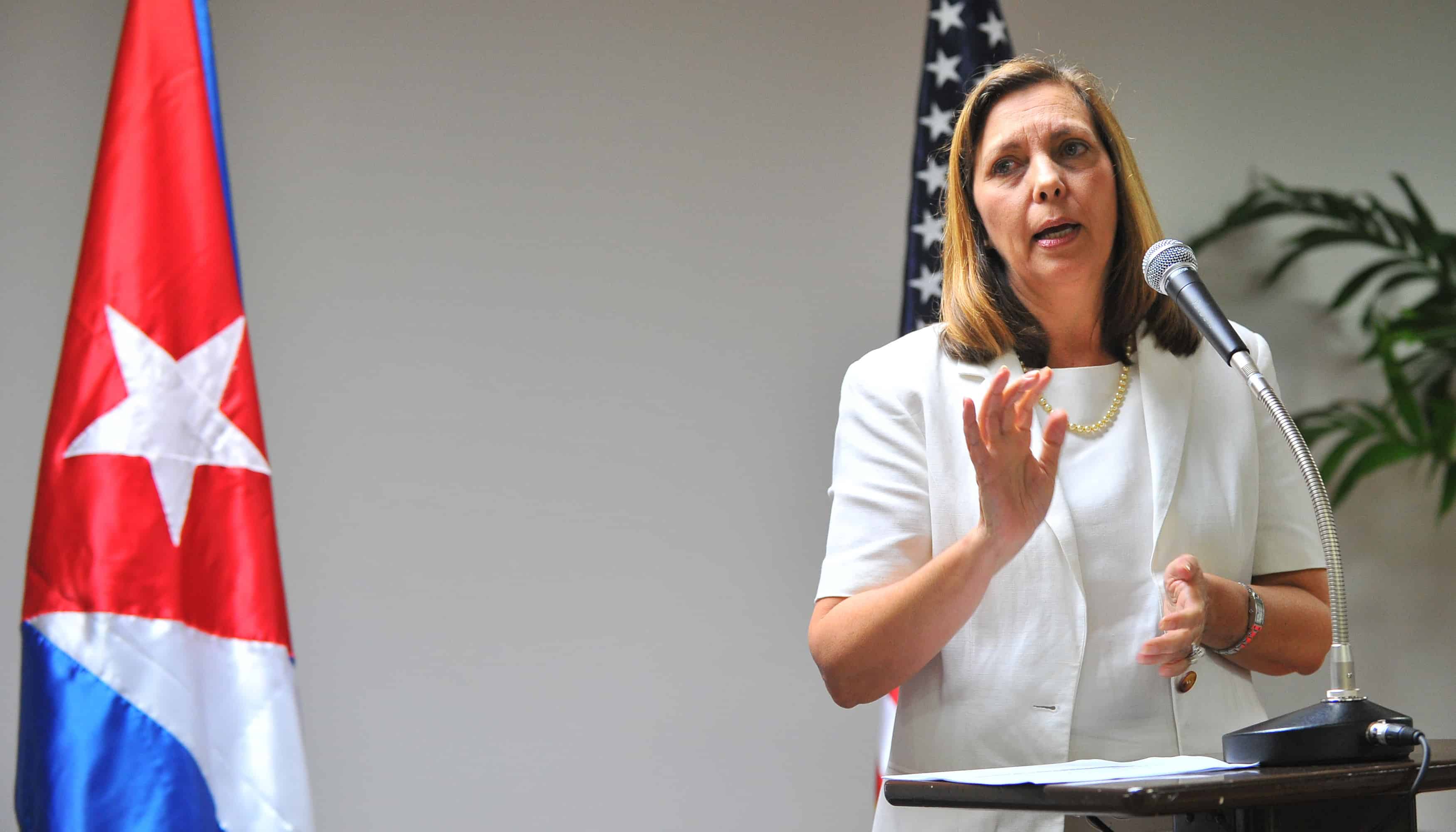HAVANA, Cuba – The United States and Cuba did not set a date Thursday to reopen their embassies, but the Cold War foes agreed to meet again to overcome deep rifts and work towards normalizing relations.
Cuban officials and the highest-ranking U.S. delegation to visit Havana in 35 years said their landmark discussions had been productive as they work to restore ties broken off in 1961.
Both sides admitted they had “profound differences” but they decided to see each other again. They must still discuss a date or location for their next meeting.
It was the first meeting since U.S. President Barack Obama and Cuban leader Raúl Castro surprised the world in December when they simultaneously announced plans to normalize ties.
Roberta Jacobson, the U.S. assistant secretary of state for the Western Hemisphere, said the talks in Havana’s Convention Center had been “positive and productive.”
The two sides discussed technical issues that need to be worked out to open embassies but, Jacobson said, “I can’t tell you exactly when that will happen.”
The broader goal of normalizing ties will take time, the U.S. official said.
“Those issues that are part of the full range of normalization are complex and they reflect profound differences between our two countries and will continue to be discussed,” she said.
“We have … to overcome more than 50 years of a relationship that was not based on confidence or trust,” she said after the four-hour meeting, one day after her deputy met Cuban officials on migration policy.
Jacobson said she raised human rights concerns during the talks with her Cuban counterpart, Josefina Vidal, and that the communist side’s response was “that they have differences with us on that subject.”
But Vidal denied that human rights were discussed during the meeting.
“This issue was not discussed during the talks. Today’s meeting was solely and exclusively to talk about the issue of re-establishing relations, opening embassies and the subsequent normalization process,” she said.
Vidal said it was difficult to reopen the Cuban embassy in Washington when Havana remains on a list of state sponsors of terrorism and the U.S. embargo has blocked its consulate from accessing banking services.
Obama has asked the State Department to review Cuba’s inclusion on the blacklist. He has also urged the U.S. Congress to lift an embargo that Havana blames for its economic woes.
Kerry hopes to open embassy
The raising of the U.S. and Cuban flags in each other’s capitals would send powerful signals of the new era the two nations want to enter.
“When it is timely, when it is appropriate, I’ll look forward to traveling to Cuba in order to formally open an embassy and begin to move forward,” U.S. Secretary of State John Kerry said on Wednesday.
The two sides negotiated how to turn their “interests sections” into fully functioning embassies with ambassadors in Washington and Havana.
The U.S. mission to Cuba, a concrete and glass building along the capital’s picturesque seawall, has been a symbol of the countries’ mutual animosity since it opened in 1977.
Across the main entrance, the Cuban government built a vast esplanade to hold anti-U.S. rallies.
In 2006, then-President Fidel Castro ordered 138 flagpoles erected to block a giant display screen the mission was using to convey political messages.
Now, Washington wants Havana to reaccredit its diplomats; end travel restrictions for them within the island; ease shipments to the U.S. mission; and lift a cap on U.S. personnel.
For Cuba, banking restrictions prevented its consulate from issuing passports between February and May last year because it could not find banks to handle transactions.
Cuban diplomats also face travel restrictions in Washington.
Other differences were on display on Wednesday, as Cuban and U.S. officials remained at odds over U.S. policies that give Cubans who reach U.S. soil quick access to permanent residency.
‘Same bed, different dreams’
Arturo López-Levy, an international affairs professor at New York University, said the talks are important for building trust.
“Although Havana and Washington differ in the objective that they seek in the long term, today they are in the same bed. It doesn’t matter that they have different dreams,” he said.
The dissident community on the island of 11 million has had a mixed reaction, praising Obama while voicing concern that too much was conceded to the regime.
In Washington, some Cuban-American lawmakers have criticized Obama, saying the administration had given up too much without securing human rights commitments.






